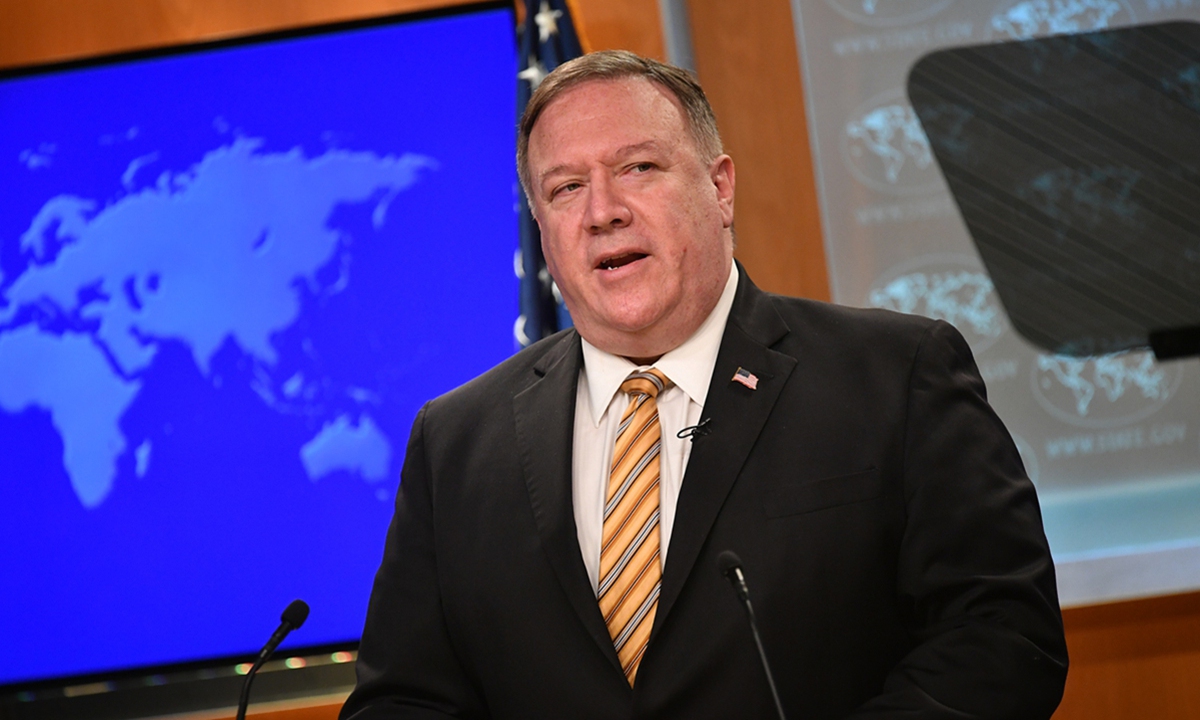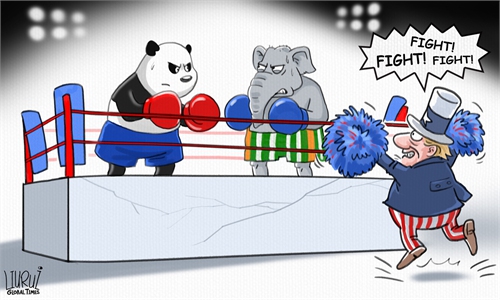
US Secretary of State Mike Pompeo File photo: AFP
India and the US are likely to finalize a satellite-intelligence pact that is supposed to improve the accuracy of Indian weapons, drones and missiles, during Tuesday's India-US 2+2 Ministerial Dialogue.
However, Chinese experts believe the pact has largely exposed India's defensive weakness to the US, and the US services may not work as India expects over compatibility issues.
US Secretary of State Mike Pompeo and Defense Secretary Mark Esper have left for India, and Esper will be given a tri-services guard of honor at the lawns of South Block in the Raisina Hills on Monday afternoon, Indian media reported.
Several Indian and US media said the two sides are expected to sign the Basic Exchange and Cooperation Agreement (BECA) to boost bilateral defense ties, allowing India to access American high-end military technology, logistics and geospatial maps.
One Indian official believes the geospatial intelligence and real-time images would be crucial to them during the border standoff with China, the Wall Street Journal reported.
However, Liu Zongyi, secretary-general of the Research Center for China-South Asia Cooperation at the Shanghai Institutes for International Studies, told the Global Times on Monday that since 70 percent of Indian weapons were either imported from Russia or were of Russian origin, the US services in the pact may be incompatible with Indian weapons.
Signing the pact also means that India has to expose its major defense weakness to the US, which makes it easier for the US to manipulate India, Lin Minwang, deputy director at the Center for South Asian Studies at Fudan University, told the Global Times on Monday.
India Today reported that the new pact will provide a "forward-looking vision" for the strategic partnership between the two countries, and a commentary carried by the Times of India called on India and the US to "take the defense ties to the next level" to balance China.
Chinese analysts said although the BECA was the last of the three basic agreements the US signed with its close partners, which indicated that India may become a de facto ally of the US, India's value to the US is not as high as other US allies in the Asia-Pacific region, such as Japan and Australia.
Lin said the US used India to pressure China, and if another border conflict similar to 1962 takes place and China defeats India again, India would lose its strategic value to the US.
The signing of the pact, just a week before the US elections, is meant to boost Donald Trump's reelection chances, Chinese analysts said, adding that deeper India-US relations remain up in the air.
Meanwhile, Chinese analysts believe 5G will be also on Pompeo's agenda in India, as he is likely to push India to further close its doors to Chinese tech giant Huawei from its 5G market, as he had attempted to do in Europe.
However, Lin believes India is unlikely to completely shut its doors to Huawei. "As a country which attaches importance to tangible benefits, India is aware that the alternatives the US could offer have increased the cost," Lin said.



